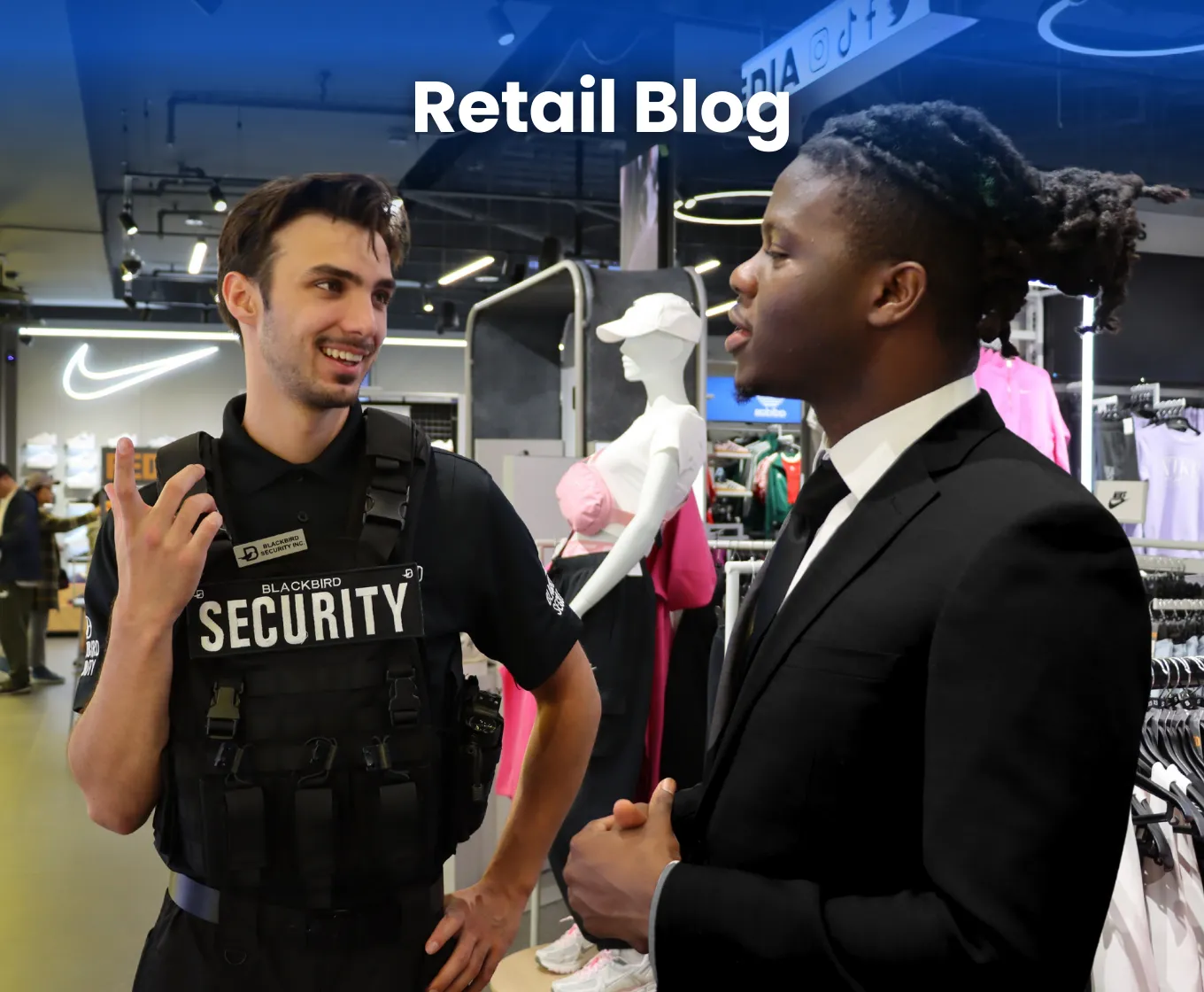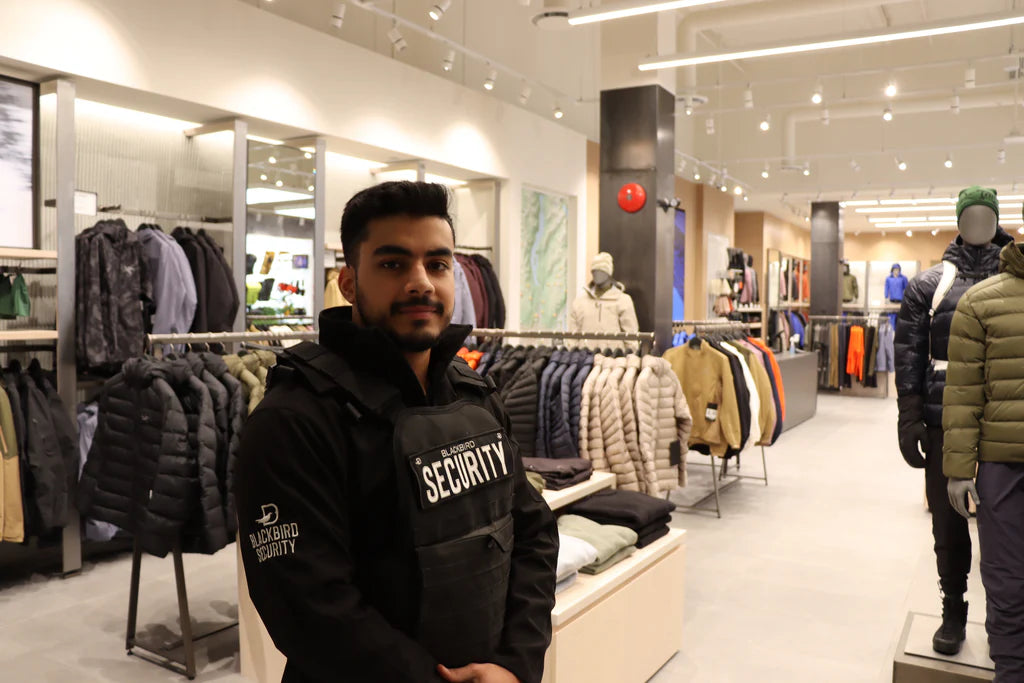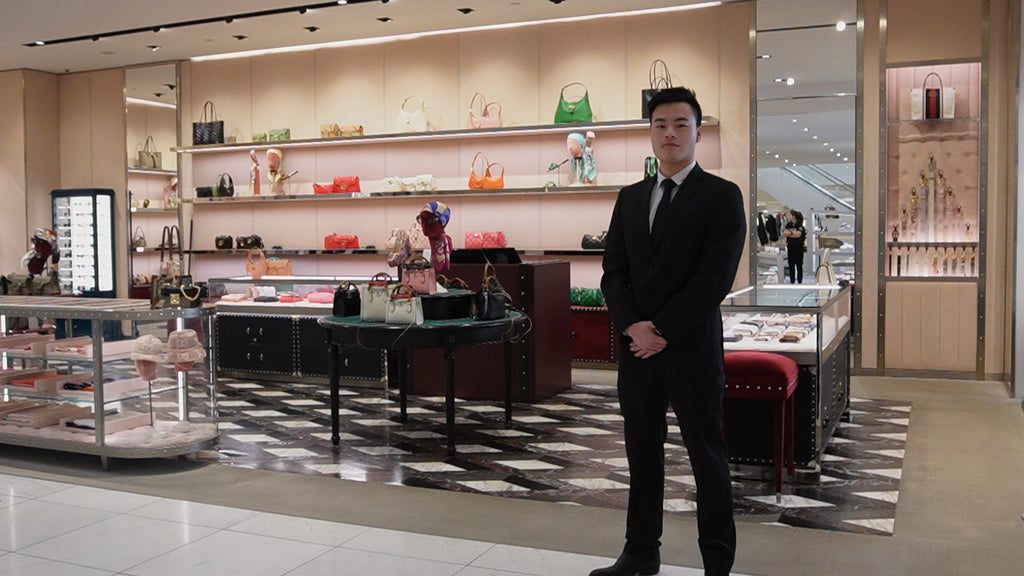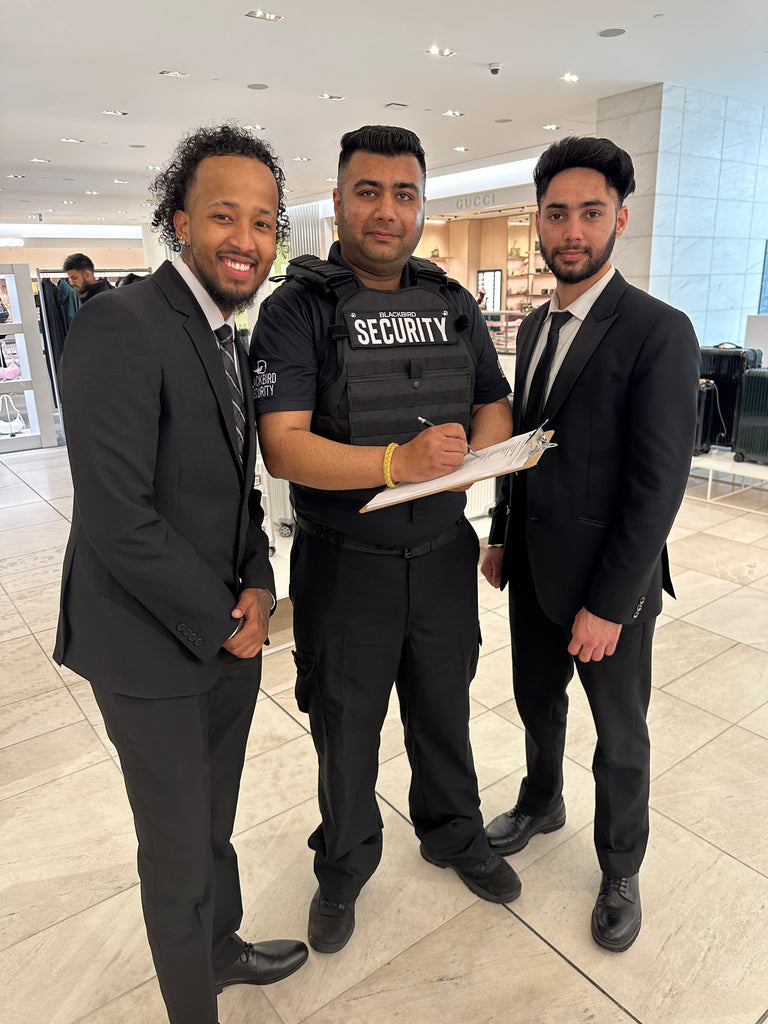Back
Back

Have a question about retail security or loss prevention? This article is for you. Drawing on our decade of experience safeguarding retail stores across Canada at Blackbird Security, we’ve gathered answers to our most frequently asked questions around retail security.

Retail security is the practice of protecting customers and property through measures such as access control, customer service, and general security.
Loss prevention is an element of retail security focusing on preventing theft, shrinkage, and other forms of loss. This practice helps retain company profits while ensuring a safe and secure environment for employees and shoppers. On-site loss prevention security is the most effective way for retail businesses to save money and reduce shrinkage.
Loss prevention focuses specifically on preventing theft and protecting merchandise, while retail security more broadly refers to measures that keep customers safe.
A loss prevention operative (LPO) is typically an undercover retail security professional who is expertly trained to identify theft, recover stolen items, and discreetly make arrests. LPOs roam the store floor, keeping a watchful eye out for any theft being committed by shoppers and, in some cases, employees.
In addition to LPOs, the most common types of guards stationed at stores are standard, tactical, and suit-and-tie security guards.
Standard security guards are a store’s first line of defence. Their uniforms and professional presence communicate to potential criminals that the store is well-protected, while providing a safe atmosphere for legitimate customers. These guards are often stationed at store entrances, but may also conduct foot patrols.
Tactical security guards provide enhanced protection for retail locations experiencing elevated security risks. Wearing specialized uniforms, including tactical vests and equipment, tactical guards serve as a strong deterrent to criminals, including organized retail crime groups. Tactical guards also undergo advanced training in the use of force.
Suit-and-tie security guards provide an elevated level of protection for high-end businesses and boutiques. As their title suggests, these security guards wear suits, rather than standard security guard uniforms, to enhance a store’s shopping environment.
Many business owners in Canada don’t realize that retail theft losses exceed $9 billion per year nationwide, per the Retail Council of Canada. For the average retailer, this theft-related loss accumulates gradually over the year, often unnoticed.
The most commonly shoplifted items are stolen for personal use. These can include:
Makeup and cosmetics
Gift baskets
Meat
Cheese
Toys
Alcohol
Clothing
Toiletry products
Organized retail crime (ORC) is professional shoplifting involving groups of individuals who steal from stores with the intention of selling items at a profit on the black or secondary market. ORC groups are often involved in other syndicated crime schemes, such as fraud, human trafficking, drug distribution, and money laundering.
Organized retail criminals target goods with high resale value. Some of the most commonly stolen items by ORC groups include:
Designer winter jackets
Perfumes, colognes, and fragrances
Sunglasses
Handbags
Consumer electronics
Small appliances like blenders and espresso machines
Jewelry

Security guards look for visual clues that might indicate a person intends to steal, including:
Grabbing multiple items
Direct eye contact with CCTV cameras
Bulky clothing with large pockets
Customers who enter in a group before splitting up.
Distraction tactics to occupy store staff while others commit a theft.
Carrying large bags and backpacks.
Glancing up and down the aisles while selecting products.
Exiting the store in a hurry without looking at or interacting with staff.
Lingering in certain areas without making a purchase.
When a retail security guard observes evidence of shoplifting, such as finding unpaid merchandise in bags or in the subject’s pockets, they will escort the shoplifter to the back room. The security guard will record the shoplifter’s name, write a comprehensive report on the incident, and contact management and law enforcement if necessary.
Yes. While your store may or may not require an LPO or a retail security guard, it is still best practice to install CCTV cameras, alarms, and develop a comprehensive retail security strategy to minimize losses.
If you notice an increase in theft or shrinkage, or if your staff report more altercations with customers, you should invest in retail security to protect your store and keep your staff and shoppers safe. Additionally, if you are approaching a busy sales period, such as Black Friday, or if your store will be carrying new, expensive merchandise in the near future, you should consider retail security to provide support for your staff.
While CCTV cameras and security guards each provide valuable protection for retail stores, the best security strategies combine both. A comprehensive retail security approach that combines CCTV with a physical security presence will provide the most proactive protection for your store.
The presence of cameras may help deter criminal behaviour, as potential thieves may reconsider committing a crime when they know they are being recorded. However, CCTV cameras do not directly deter criminals or prevent theft in action, which is where an on-site retail security presence comes into play.
If your store plans to offer Black Friday or Boxing Day sales, you most likely need a security presence. This is especially true for retailers located on busy downtown high streets or within malls.
During chaotic sales, shoplifters are more likely to go unnoticed as they escape with stolen goods. Staff team members will be busy helping shoppers and keeping the store floor organized, and won’t have the time or training to watch closely for shoplifters the way a dedicated security guard can.
Learn more about preparing your store for Black Friday sales in our previous article, Top Retail Security Tips for Black Friday.

Stores are under increasing threats from organized retail crime, shoplifting, and general disruption. At a time when costs are high for retailers, retaining customers and protecting inventory are top priorities for many business owners. At Blackbird Security, we understand the unique needs and challenges that stores face daily. That’s why we’re trusted by national brands to deliver exceptional services, including Sephora, Holt Renfrew, MEC, and Canadian Tire.
Contact us today to learn how we can safeguard your store or explore our full suite of retail security services.



